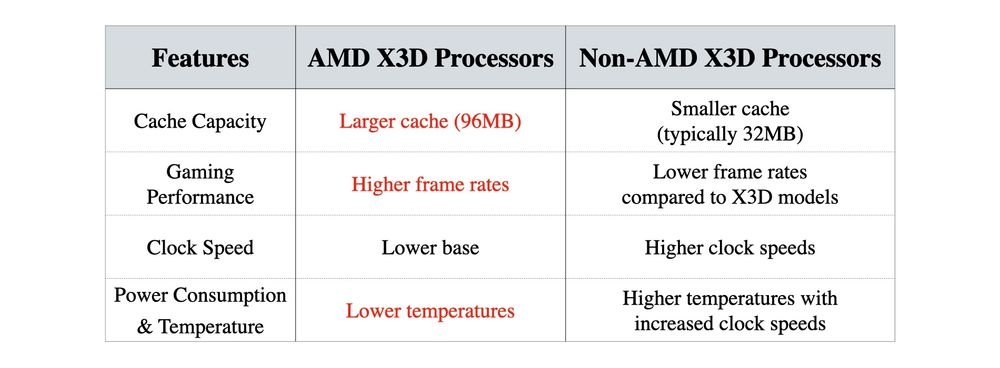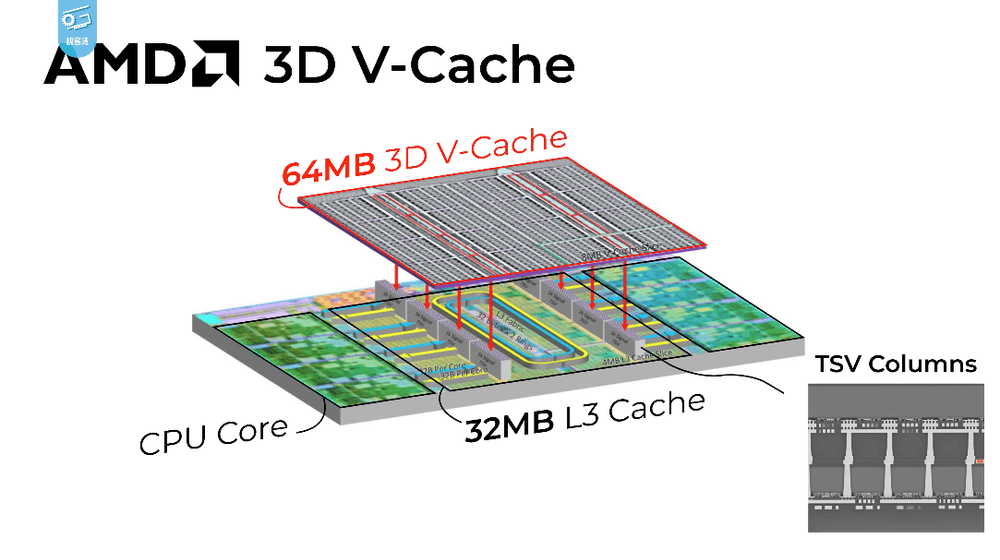In fact, AMD, as an entrant in recent years, has electrified the CPU world with its X3D. What is the difference between an X3D processor and a non-X3D counterpart? As a gamer hoping to eat out more from the frame rates, or a content creator trying to maximize the workloads. It’s important to make out the differences while building the decision for the appropriate processor. Besides, with AMD currently becoming the name for high-performance computing. It is imperative for everyone to know where each chip finds its sweet spot.
Core Technology: What is AMD 3D V-Cache?
The biggest difference between X3D and non-X3D processors is that they are based on AMD 3D V-Cache technology. Most broadly, AMD allows around L3 cache for the CPU via vertical stacking. As a note, the Ryzen 7 7800X3D claims a whopping 96MB of L3 cache. Therefore, the number stands at 32MB for the Ryzen 7 7700X.
And this extra cache brings down memory latency along with making access speeds to data better than before. As a result, X3D CPUs are known for giving that extra edge during play or cache-sensitive applications.
Performance Contrasts: The True Protagonist of Gaming

X3D models are avid winners over their non-X3D counterparts in all things gaming. This is well illustrated with a number of benchmarks indicating how the Ryzen 9 7950X3D could outstrip other top chips in Intel’s stable in many popular AAA titles. The same cannot be said for the standard Ryzen 9 7950X, which, although very fast, is dismayed by its relative deficiency in cache bandwidth.
Moreover, the increased L3 cache prevents dips in FPS in X3D chips. Therefore, a form of smoothness in gaming experiences, most notably in CPU-bound scenarios. Suffice to say, X3D processors give curious gamers a leg up in performance.
Workstation & Cooling Efficiency: X3D-Does Better, Right?

Even though X3D processors look great to play-game, they’re still not necessarily the best for productivity-hit tasks. In fact, several non-X3D chips, such as the Ryzen 9 7950X, work even better than X3D chips in multi-threaded workloads like video rendering and 3D modeling, because the non-X3D models run at a higher clock speed with more thermal headroom.
Simply very superior at extremes in other respects, the X3D processors consume less power and have better thermal profiles. So, if you’re making a compact or quieter system, an X3D CPU might fit in even for moderate creative works.
Price vs. Performance: Which Should You Buy?
During your next upgrade, price to performance is sure to be a consideration. The AMD X3D processors definitely command a higher price due to the advanced 3D V-Cache technology, but generally the performance gains, especially in gaming, should outweigh the cost.
Conversely, if you are looking primarily for budget general productivity or multitasking, a non-X3D model like the Ryzen 5 7600X would be a better option, being available at much less cost while still giving excellent performance and overclocking ability.
Final Verdict: AMD X3D or Non-X3D?
To summarize, choose AMD X3D processors if you want to build an exclusive gaming rig or a high-end PC that would be more directed towards frame rates and smooth gameplay as compared to anything else. But if you are a content creator, indulge in 3D designing, or need a processor that can multitask, then an X3D processor is not likely the best choice.
You know, both are essentially based on AMD’s latest architecture, but the strengths differ for different users. Well, just weigh your requirements, budget, and kind of work, then choose the right processor to power your ambitions.



